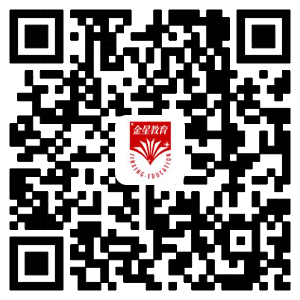不明确指代某个特定的人或事物的代词叫不定代词。英语中的不定代词常常成对出现,如some 和any, all 和both, neither 和 either, each 和every, other 和another, much 和many, one 和no, none和no one, few 和 a few, little 和a little,等等。另外,还有由some, any, every, no 与 body, one, thing构成的复合不定代词(somebody, anybody, everybody, nobody, someone, anyone, everyone, no one, something, anything, everything, nothing)。
1. some 和any
some 和any都可修饰或指代可数名词和不可数名词;some 一般用于肯定句,any一般用于疑问句和否定句。如:
I must get some fruit in the market. 我得在市场上买点水果。
Do you have any books for children? 你有适合小孩子看的书吗?
【说明】(1) 当表示请求或要求并希望对方能给出肯定的回答时,some 也可用于疑问句;any 表示“任何的”之意时,也可用于肯定句。如:
Can you give me some paper? 你能给我些纸吗?
Would you like some bananas? 你想吃点香蕉吗?
You can read any of the books. 你可以看这些书中的任何一本。
(2) some 和any均不能跟冠词连用。
(1) all 表示三者或三者以上的人或物;both只能表示两者。如:
Copper and silver are both metals. 铜和银都是金属。
Not all women like the word Ms. 并非所有的女性都喜欢Ms这个词。
(2) all 和both都可以与定冠词连用,置于定冠词之前。如:
Are all the students here today? 今天所有的学生都到了吗?
【说明】在句子中用作同位语时,一般放在行为动词之前,情态动词、系动词be或助动词之后,但当行为动词或表语省略时,all, both放在情态动词、系动词be或助动词之前。如:
They haven’t been there, but we both have. 我们没有去过那儿,但我们俩去过。
3. neither 和 either
neither 和 either 均用于指两者,neither 意为“两者都不”,either意为“两者之一”、“任意一方”。如:
Neither of us enjoy getting up early. 我们俩谁也不喜欢早起。
There are trees on either side (=on both sides). 两边都有树。
【说明】(1) 只用于指两者,指三者或多者要用 none 和 any。
(2) neither 有时可视为 either 的否定式,即 neither= not either。
(3) 两者均可修饰名词,但被修饰名词要用单数形式。
4. each 和every
(1) each 强调个体,指两者或两者以上的人或物,在句子中可用作主语、宾语,也可做定语(修饰单数可数名词);every强调全体,只能指三者或三者以上的人或物,在句子中只能做定语,修饰单数可数名词。
(2) 两个用 and 连接的名词若受each或every修饰且用作主语时,其谓语依然用单数。如:
Every [Each] boy and girl has one. 每个男孩和女孩都有一个。
但是,each 用于复数主语后作同位语,后面的谓语用复数。如:
The students each have a dictionary. 学生每人有一本字典。
(3) every 后接“数字或few +名词”可表示“每……”,而 each 一般这样用。如:
He comes home every two weeks. 他每隔两周回家一次。
She visits her parents every few days. 她每隔几天看望她父母亲一次。
注意:(1) each 指两者或两者以上的“每个”,every 指三者或三者以上“每个”,因此指两者时只能用 each。如:
He could write with either hand. 他两只手都能写字。
(2) every 可受 almost, nearly 等副词的修饰,但 each 却不能。
5. one, another
(1) one 指一个或相似的一个;another指另外的一个,表泛指。如:
Please give me another. 请给我另一个。
I haven’t a book; can you lend me one? 我没有书,你能借我一本吗?
【说明】another 可以修饰one,但one 不能修饰 another。如:
Please give me another one. 请给我另一个。
(2) one 可与 this, that, the 等连用,表示特指;another不能与这些词连用,也不能表示特指。如:
This one is better than the one over there. 这个比那边的那个好些。
(3) 在一定范围内,表示其中的一个用one,表示另一个可用one或another。如:
One boy was reading; one [another] was writing. 一个男孩在读书,另一个在写字。
注意:若指两者中的一个和另一个,则用one…the other。
6. other, the other, others, the others
(1) 带定冠词的 the other, the others 表特指,而不带定冠词的 other, others 表泛指。如:
Don’t cut in when others are talking. 别人说话时别插话。
Only Jim was there. The others had left. 只有吉姆在那儿,其余的人都离开了。
(2) other 和 the other 后可修饰名词,也可单独使用;而 others 和 the others 则只能单独使用,不能修饰名词。如可说 the other people,但不能说 the others people。
(3) other 和 the other 既可表示单数也可表示复数,具体视它所表代替或修饰名词的单复数而定,而 others 和 the others 则永远表示复数。
(4)注意正确理解以下短语的意思:
every other 每隔一……,其他的……都
none other than 不是别的,正是……
no other than 不是别的,正是……
one after the other 一个接一个地,相继
one from the other 分别,各别
some . . . or other 某一个
other than 不同于,除了
the other day 早几天,几天前
